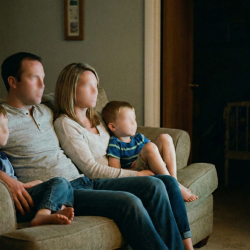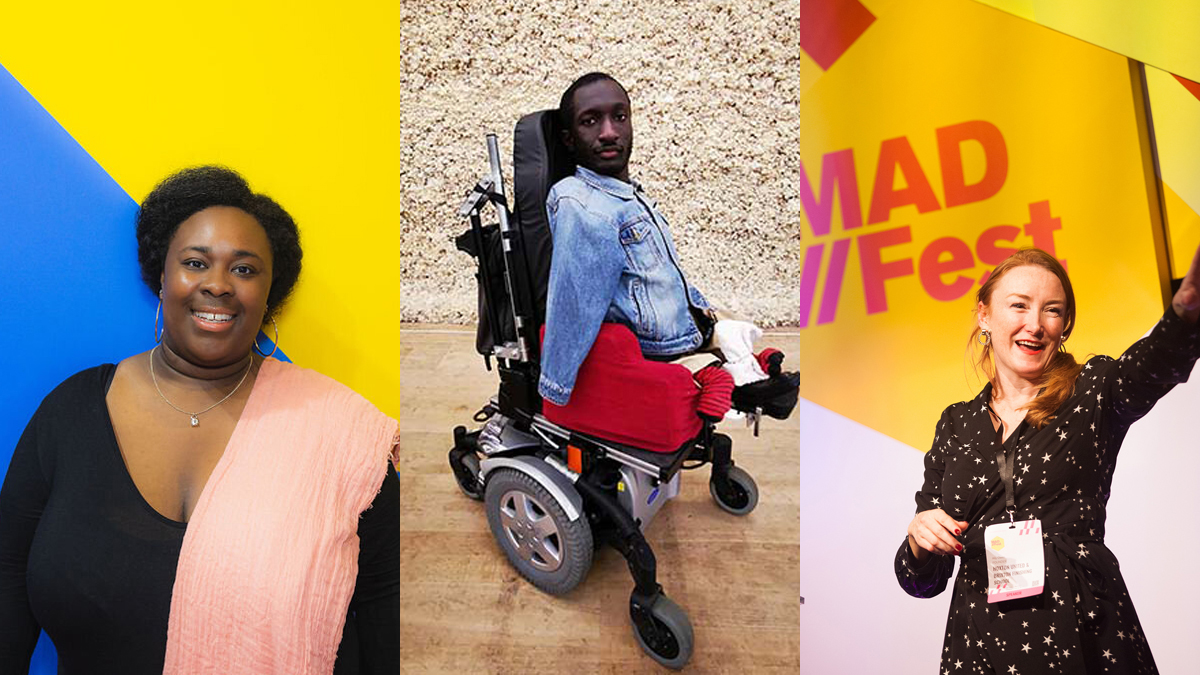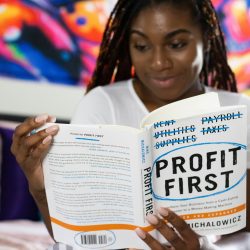Lauralee is a speaker and talent specialist, an equality, diversity and inclusion champion, the founder of Spectrum Speakers, and one of The Dots’ 100 Black trailblazers redefining the industry in 2021. In this interview our Editor, Mike Piggott, spoke to her about founding a business during the pandemic, the future of work and the great resignation, and hanging onto diverse talent.
Hi Lauralee. First off, congratulations on making The Dots’ 100 Black Trailblazers list. How did that feel? Do they tell you why you made the list or just see your name appear there?
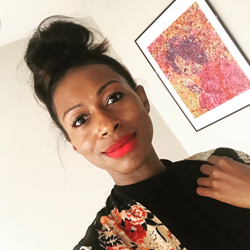
Thanks Mike, it feels really great to be gaining recognition. A few people I know mentioned that they had put my name forward for a mention, which I thought was lovely, but didn’t think anything of it beyond that.
I myself put forward the names of many Black purpose-driven creatives making waves right now, so I was genuinely surprised to be picked among them.
We assume you making the list has something to do with founding Spectrum Speakers. You founded the company about 8-9 months ago, right? What led to the decision to create Spectrum?
I’ve been in the industry for a long time, but for such a short time doing what feels really meaningful. I long sensed a disparity in the speaker selection process — it’s almost always the case that ‘specialist’ or ‘business thought leadership’ talks would be delivered by white men over 40, and efforts to diversify this, in any way, would be with a smattering of white women.
I used to predominantly see people of colour, disabled people or others with protected characteristics being asked to take centre stage to talk about diversity (or lack of) in their industries. Sharing stories about how difficult their journeys had been made me think that we’ll never move forward unless we actually focus on equity. Meaning: diverse people who are industry experts and thought leaders in their own right.
Since launching Spectrum, have you seen much change in the marketing industry? Have some things gotten better? Has anything gotten worse?
I’ve seen some change and I wish I could say huge progression. There’s a lot more talk about diversity, a lot of ‘displays’ of inclusion, but still just a lot of half measures. Often an organisation will do a big push with lots of training, but little implementation beyond that. It’s a bit like going to the gym for a week, declaring yourself ‘fit’ and never going again for the rest of your life.
Inclusion is a constant and evolving effort, one which takes regular analysis and refinement. There needs to be a clear set of values and objectives. It sounds like a lot of effort, but the rewards come in accelerated productivity, innovation and growth.

With International Women’s Day next month, I wanted to ask, what’s been your experience not only as a young woman running a business, but also a Black woman?
I admit, I’ve had a great experience so far. The support, especially from other women, has been incredible. I read last year in Forbes, that Black women are the fastest rising demographic, in terms of entrepreneurs. I can’t speak for other women, or Black women, but I can imagine many will relate to having been ‘censored’ professionally. Many places I’ve worked I’ve needed to present a certain way, my diction, how I dress and what I eat (and don’t get me started on hairstyles).
I didn’t foresee becoming a business owner. It wasn’t something that I necessarily aspired to be, however it was up to me to create the work culture I needed, in order to thrive — and hopefully one where others will too. It’s very inspiring to see so many women doing the same.
Editor’s note: Spectrum have a great list of speakers for International Women’s Day.
Can we talk a little about the future of work: where do you see things going? What’s the great resignation telling us?
Well, my crystal ball is a little dusty, but the Great Resignation speaks for itself and reflects that the old organisational frameworks need to change, and quickly. I’ve spoken about this at length, especially with fellow female business owners. We can all see that the pandemic has dramatically altered the way we work, it’s highlighted that the needs of an individual employees differ greatly, depending on their personal circumstances.
Times of the day to be productive are different for everyone. I’ve discovered that I’m actually my most productive late afternoon/early evenings. The “all present, all the time, Monday to Friday, 9-5″ isn’t supportive of these differences. For me, the future of work needs to be a structure that rewards and reflects specific outcomes and timelines. Ideally managers should be giving their teams a series of tasks with a clear specification for how and when they need to be completed — and they should be allowed to get these done as they see fit. There’s so much to unpack with this and we’ll be exploring some of these themes in our upcoming Future of Work event in April.
With many people realising what matters to them during this pandemic and upping sticks and leaving jobs, how do companies hang on to good people?
By countering the problem — if employees have discovered what matters to them and where there is misalignment with their work balance. It would then make sense to find out what these disparities are, and create solutions which suit your employees. The only reason why this appears to be so hard for employers, is because they’ve not yet made the mental shift from the old business constructs.
When there is trust, flexibility, balance and innovation, employee productivity will thrive. It really is that simple. There will, of course, be some ‘trial and error’ in getting to grips with a new process. Many progressive organisations have 1-2 days a week where everyone meets face-to-face to plan and regroup. There isn’t going to be a ‘one size fits all’ approach or solution, which has been the problem up until now. Organisations need to decide on their uncompromisable values and culture and seek to create teams who embody this.
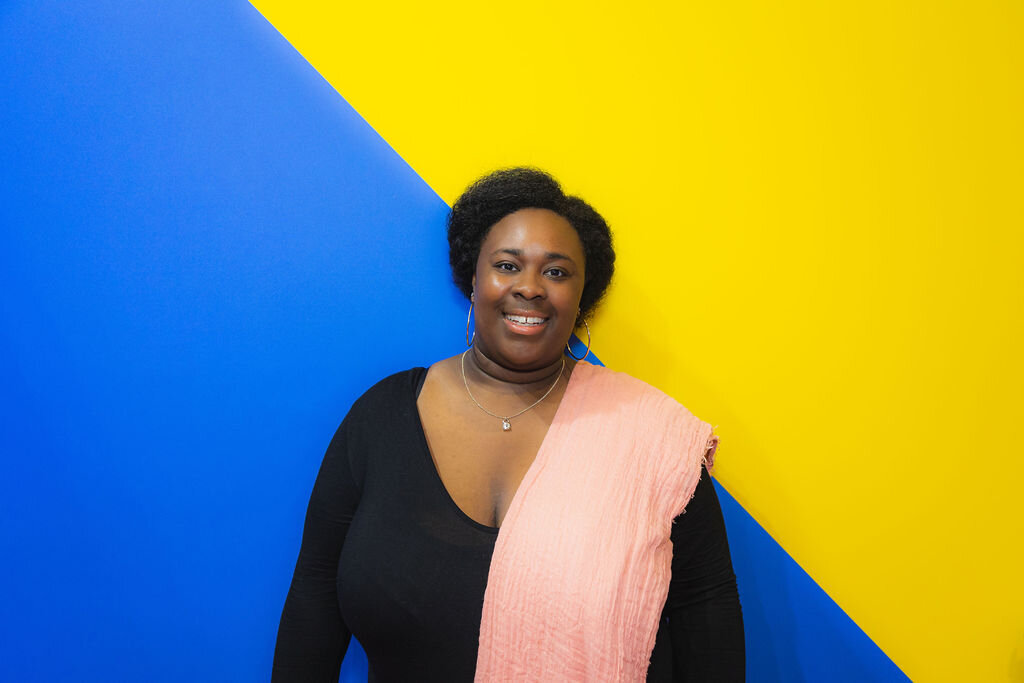
How do they ensure they keep their talent as diverse as possible?
By fully understanding what diversity means. It’s not just about people from different ethnicities. It’s about accessibility, about people who speak differently, and people who have a variety of faiths and beliefs, and different concepts of gender and sexuality. It’s understanding and accepting all of these things, while equally knowing that it’s also really none of your business. By really understanding the number of marginalised groups out there, you can ensure that you create a space for each of these groups — not simply to be tolerated, but to flourish, with all impediments visibly removed.
This starts with representation at the highest level. If employees only ever see white male boards and executives, then no matter what kind of a great environment you create in the middle, there will always come a point at which you’ll lose talent because they can’t see a way to the top. We all want to progress, it’s human nature.
Also, why should they? It’s probably diversity 101, but why is it important to keep your teams diverse, and not just see diversity as a box ticking exercise?
Respectfully, I’m no longer answering this question. I don’t believe in building a business case for diversity. If that’s the only thing that’s going to change someone’s mind; they’re already in it for the wrong reasons. I’m here for any business who knows that it’s the right thing to do, but perhaps doesn’t know where to start. Just not for those only asking why — we should be way past that.
What do you say to company bosses and event organisers that say it’s too hard, that the talent isn’t out there? Other than just go onto Spectrum’s website, of course!
The same as above. If you’re determined to find something, anything, then chances are that you will. The opposite is also true. If you believe that it’s too hard and that diverse talent just isn’t out there, then it’s going to be easy to prove yourself right. The bottom line is that it’s just not important enough to you or your clients.
I get that it might be tricky to discover where to start, but right now there are a wealth of resources out there — you can find diverse talent in every industry. Great organisations I can advocate are Brixton Finishing School (and their umbrella organisations), Global Equality Collective, Found By Few, and Change The Stage.
Speaking of Spectrum, I thought we could finish with some inspiration. If you had to pick five speakers from your roster to showcase Spectrum, and also showcase the breadth of diverse and interesting speakers out there, who would you pick?

To choose five is going to be incredibly difficult as they’re all amazing! In no particular order though, I’m going to highlight the below and their areas of expertise:
Ally Owen — The Future of Work & Talent; Social Mobility; Everyday Changemaking; Digital Landscape
Ezechi Britton MBE — Venture Capital, Investing and Social Mobility; The Tech Founder’s Journey, Startup Strategies, Diversity in Data & Tech

Ashanti Bentil Dhue — Inclusive Leadership; EDI Policy and Benchmarking; Recognising and Supporting Employees in Debt; How to navigate difficult but necessary conversations at work
Isaac Harvey — How Accessibility Benefits Everyone; Building Your Personal Brand Authentically, How To Win at LinkedIn
Vanessa Vallely OBE — The Power of Profile, How your Network impacts your Networth, Planning & Goals Workshop, Championing Women In Tech

